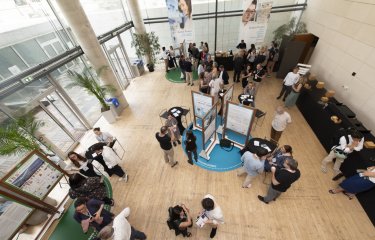The licensing agreement signed in 2022 between Institut Pasteur and Meletios Therapeutics, a French biotechnology company specialised in the research and development of next-generation antiviral treatments, concerns a cutting-edge technological platform for generating Defective Viral Genomes (DVGs) for the development of a new class of antivirals.
The extension of the scope of this licensing agreement will enable Meletios Therapeutics to apply this highly specific method for generating new DVGs to the entire family of flaviviruses (dengue and yellow fever viruses, etc.), alphaviruses (equine encephalitis and Sindbis viruses, etc.) and coronaviruses (SARS, MERS, etc.).
The technology developed by Meletios Therapeutics, which emerged from research at the Institut Pasteur, is based on the generation, identification and use of Defective Virus Genomes (or DVGs), truncated copies of a virus that have lost their pathogenic properties. However, certain specific DVGs are still able to use cellular mechanisms to replicate themselves and are therefore in competition with infectious viruses for these processes. As a result, these DVGs have a strong capacity to parasitise or even inhibit replication of the original virus.
The transfer of know-how for this technology from Institut Pasteur to Meletios Therapeutics, which began when the agreement was signed, has come to an end. As a result, Meletios Therapeutics now has an operational technological platform enabling it to identify, select and then generate, within nine months and on an industrial scale, the most promising DVGs for the targeted viral indication.
Meletios Therapeutics has also announced that it has received a €1.2m funding from BpiFrance's Deeptech development programme, which will enable the company to validate its DVG platform and develop its first candidates based on this platform.
Meletios Therapeutics: https://meletiostx.com




